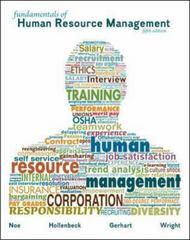Question
Part Four: Chapter Two Assignment This chapter emphasizes the importance of soft skills and why they are becoming increasingly important in our knowledge-based economy. Soft
Part Four: Chapter Two Assignment
This chapter emphasizes the importance of soft skills and why they are becoming increasingly important in our knowledge-based economy. Soft skills include oral and written communications, listening proficiency, nonverbal communication, the ability to work in teams, and etiquette expertise. By developing soft skills, students will increase their ability to succeed in today's digital-age workplace. With the increased use of teams in the workplace, it's particularly important for students to understand the roles of team members and how to contribute to the productivity of the team. This chapter also describes effective practices for planning and participating in virtual meetings. To familiarize students with the latest technologies used to connect employees around the globe, Chapter 2 describes the tools used to connect virtual teams, including voice conferencing, videoconferencing, Web conferencing, instant messaging, blogs, and wikis.
Because listening is usually the least developed areas of communication, the chapter describes effective listening techniques and stresses that effective listening skills are essential for workplace success. Finally, the chapter stresses the importance of paying attention to and interpreting the meaning of what others are saying, both verbally and nonverbally, and gaining a competitive edge by demonstrating professionalism and business etiquette skills.
Do a short (half page) essay on each of the following learning objectives. After reading your work I should be confidant that you understand the material well enough to explain it and to give examples
Questions
1. Author and teamwork critic Susan Cain claims that research "strongly suggests that people are more creative when they enjoy privacy and freedom from interruption." In her book Quiet: The Power of Introverts in a World That Can't Stop Talking, in articles, and public appearances, Cain cautions against the current emphasis on teamwork in the workplace. Cain cites studies by the psychologists Mihaly Csikszentmihalyi and Gregory Feist, according to whom "the most spectacularly creative people in many fields are often introverted. . . . They are not joiners by nature." How would you, as a critical thinker, respond to these statements? (Obj. 1)
2.Evaluate the following humorous analogy between the murder of a famous Roman emperor and the deadening effect of meetings: "This month is the 2,053rd anniversary of the death of Julius Caesar, who pronounced himself dictator for life before running the idea past the Roman Senate. On his way to a meeting, he was met by a group of senators who, wishing to express their unhappiness with his vocational aspirations, stabbed him to death. Moral of the story: Beware of meetings." Is the comparison fitting? What might the author of the article have wanted to convey? (Obj. 2)
3.Why do executives and managers spend more time listening than do workers?
(Obj. 3)
4. What arguments could you give for or against the idea that body language is a science with principles that can be interpreted accurately by specialists?(Obj. 4)
5.Ethical Issue: After much discussion and even conflict, your workplace team has finally agreed on Plan B, but you are firmly convinced that Plan A is a much better option. Your team is presenting Plan B to the whole department and company executives are present. A vice president asks you for your opinion. Should you (a) keep your mouth shut, (b) try to persuade the team to adopt Plan A, (c) explain why you believe Plan A is a better plan, (d) tell the VP and all present that Plan B is not your idea, or (e) discuss one or two points you can agree on in Plan B? (Objs. 1, 2, 5)
Step by Step Solution
There are 3 Steps involved in it
Step: 1

Get Instant Access to Expert-Tailored Solutions
See step-by-step solutions with expert insights and AI powered tools for academic success
Step: 2

Step: 3

Ace Your Homework with AI
Get the answers you need in no time with our AI-driven, step-by-step assistance
Get Started


